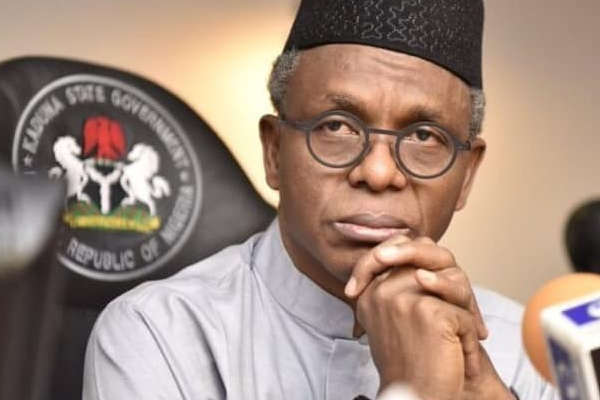News
Women must be saved from being undermined, underutilised, de-humanised – El-Rufai

Gov. Nasir El-Rufai of Kaduna State has called for the liberation of women, who are half of the state’s population, from being undermined, underutilised and de-humanised.
El-Rufai made the call at the joint launch of three programmes, aimed at promoting women’s economic empowerment and political participation in the state.
It was reported that the governor was represented at the event by his Deputy, Dr Hadiza Balarabe.
He said that three programmes: Women, Peace and Security (WPS), Women Political Participation (WPP) and Women Economic Empowerment (WEE), were supported by the United Nations Women, African Development Bank as well as the Canadian and Norwegian governments.
He said that programmes would run for five years in the state, under the supervision of the Ministry of Human Services and Social Development.
According to him,” If we want to make progress as a country, we must liberate half of our population, which consists of women, from being undermined, underutilised and de-humanised.”
He also explained that Resolution 1325 required parties in a conflict to prevent violations of women’s rights to support women’s participation in peace negotiations and in post-conflict reconstruction, and to protect women and girls from sexual violence during war.
According to him, as a girl-child, a woman is marginalised and excluded from obtaining education, exposed to violence in schools and at home, and suffers domestic violence and so many inhibiting cultural practices.
He noted that a campaign on ‘HeForShe’ programme recognised the disadvantaged position women had found themselves the world over, whether in peace or war times.
The governor stressed the need to address the women’s economic empowerment in order to touch on some fundamental areas.
He said that under the ‘HeForShe’ programme, his administration had done a lot for women, adding that the Kaduna was the only state in sub-Saharan Africa with 53 per cent of its appointed commissioners being women.
El-Rufai further assured of government supports through making of policies, programmes, legislations and other activities that would ensure that women’s lots were improved.
“We shall continue to work for a better society for women,” he said.
In her remarks, Commissioner for Women Services and Social Development, Hajiya Hafsat Baba, said that the conversations on gender equality or reduced inequality must continue until it achieved its aims.
According to her, the violence being faced by women and girls has become a consistent trend, ranging from domestic violence to traditional harmful practices.
“The current initiatives at mitigating or resolving conflicts have limited the participation of women at all levels, as they are often seen only as victims of conflicts that need to be protected rather than being agents of peace,” she said.
She said women capacity is still not fully unitilize adding that it should harnessed to promote transformative change and sustainable peace.
The commissioner said there was the need for involving women in peace and security issues across cultures and societies.
“The efforts made by international organisations, the government, civil societies and other community-based organisations around the world led to the establishment of Women, Peace and Security Agenda, through the adoption of United Nations Security Council Resolution 1325.
“As we proceed to have this joint launch, I hope that there will be noticeable behavioural change towards increased support and promotion of gender equality in our homes, communities, workplaces and daily lives,” she said.




 Davido's Net Worth & Lifestyle
Davido's Net Worth & Lifestyle 
